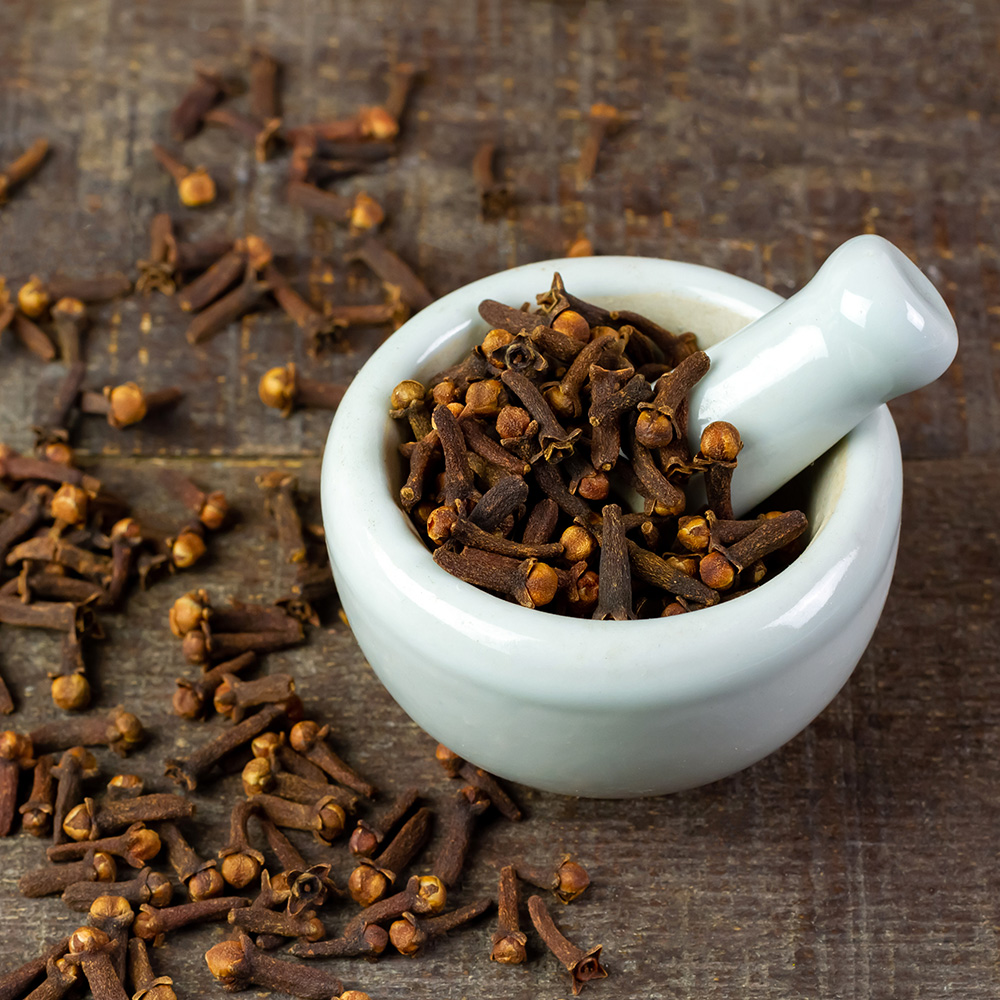The liver plays an important role in the elimination and biotransformation of harmful substances in the body. Imbalances in liver metabolism lead to oxidative stress, mainly caused by free radicals or reactive oxygen species (ROS). The generation of ROS in liver cells induces oxidative damage, cell necrosis, and moreover cell death, which can cause severe liver damage and some serious hepatic diseases such as cirrhosis if long-term exposure to ROS is not properly treated.
Eugenia caryophyllata, belonging to the family Myrtaceae and commonly known as clove, is an aromatic tree that is used as a spice in cuisines in many parts of the world.
Aflatoxins are hepatotoxic and carcinogenic substances. They have a penchant for producing ROS and causing peroxidative damage. It has been shown that ethanolic extracts of cloves show a defensive effect against aflatoxin B1-induced liver damage. The main mechanism could be related to its ability to remove intracellular reactive species by increasing the levels of enzymatic and non-enzymatic antioxidants.
In addition, eugenol (4-allyl 2-methoxyphenol), a phenolic-derived compound from the leaves or buds of cloves, has antioxidant, antibacterial, analgesic, anti-inflammatory, and antitumor activities. Moreover, the U.S. Food and Drug Administration (FDA) considers eugenol safe for use in the food and cosmetic industries as well as in dentistry. Some studies have shown that eugenol could elevate the levels of GSH, an important protein maintained during the occurrence of stress oxidative in hepatotoxicity process. It has also been shown that in a model of acetaminophen (APAP)-induced hepatotoxicity, eugenol exhibited hepatoprotective effects, especially at 25 µg/mL, reducing lactate dehydrogenase (LDH) levels and aspartate aminotransferase (AST) and alanine aminotransferase (ALT) activities.
In conclusion, clove has potential for hepatoprotection.

Lister, I. N. E., Ginting, C. N., Girsang, E., Amansyah, A., Chiuman, L., Yanti, N. L. W. E., … & Widowati, W. (2019, November). Hepatoprotective effect of eugenol on acetaminophen-induced hepatotoxicity in HepG2 cells. In Journal of Physics: Conference Series (Vol. 1374, No. 1, p. 012009). IOP Publishing. [Link]
Hamed, S. A. S., Sangamithira, S. P., Kalavathy, S., & Sampathkumar, P. (2022). Evaluation of the anti-aflatoxin potential of Clove (Eugeneia caryophyllata L.). South African Journal of Botany, 150, 633-640. [Link]
Image from website [Link]
